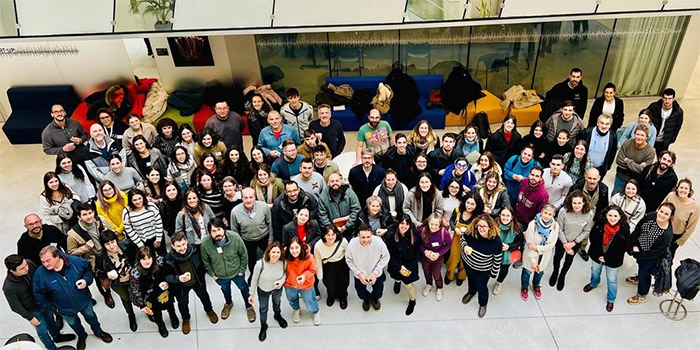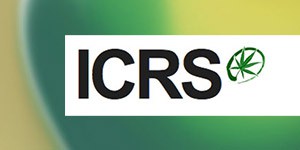The Spanish Society for Cannabinoid Research (SEIC) (www.seic.es) is a scientific society formed in 2000 by researchers active in the field of cannabinoids from the perspective of different disciplines. In its almost 25 years of existence, the SEIC has placed Spanish research on cannabinoids in a leading position worldwide in terms of the quantity and quality of its scientific production. As is now traditional, the Annual Meeting of the SEIC, which has been held on an uninterrupted basis (with the exception of 2020) since the Society was constituted, took place last November. This year, for the second time in its history, it has acquired an international character with the celebration of its 23rd meeting in Bordeaux (France). France is also active in the field of cannabinoids, and several prominent members of the scientific community in Bordeaux collaborate with SEIC researchers.
The 23rd SEIC Annual Meeting - First Joint Spanish-French Meeting on Cannabinoid Research - took place on 23-25 November 2023 at the Centre Broca Nouvelle-Aquitaine of the University of Bordeaux (France), the main research centre of the Bordeaux Neurocampus, located at the Carrier Campus of the University of Bordeaux. It was an unprecedented opportunity for scientists working in the field of cannabinoid research in Spain and France to discuss their results. The number of registered participants at this year's meeting was a very high 138, with about 30% of the participants being young French researchers. The meeting saw a total of 31 oral communications as well as 48 poster presentations, twice as many as at the 22nd Annual Meeting of the SEIC held in Pamplona, making it the meeting with the highest number of communications presented.
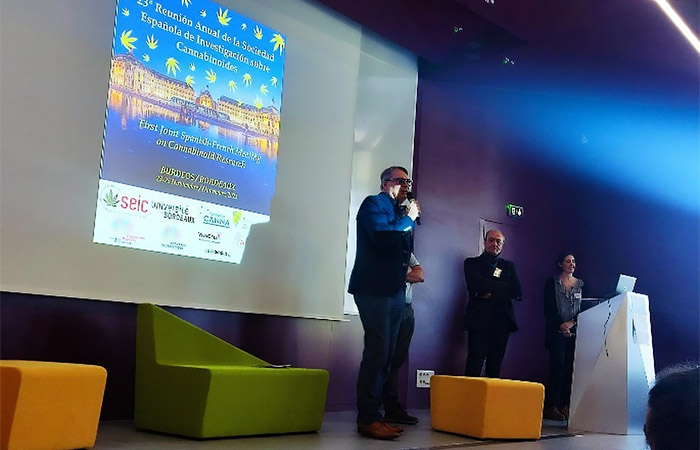
The meeting was opened after a few words from the President of the SEIC Pedro Grandes, the Director of the Neurocentre Magendie, Stéphane Olie, the Director of the Neurocampus Bordeaux, Jérôme Baufreton, and one of the heads of the SEIC Organising Committee, Cristina Miralpeix, who welcomed all the attendees and highlighted the importance of holding the Meeting once again, this year with an international character, as it was held in the neighbouring country. Pedro Grandes began by thanking the Organising Committee (Cristina Miralpeix, Abel Eraso-Pichot, Sandra Beriain, Susana Mato, Andrés Mateo Baraibar, Amaia Mimenza, Giovanni Marsicano, and Daniela Cota), as well as all the members of the Board of Directors, especially the SEIC Secretary and Treasurer Nagore Puente and Nadine Jagerovic, for all their work in making the 23rd SEIC Meeting possible. In addition, on behalf of the Board of Directors, Mr Grandes expressed his sincere thanks to all public and private sponsors for their generous donation in support of research in the field of cannabinoids, which had made it possible for the SEIC Annual Meeting to be held for yet another year. He listed the sponsors: TREPSY, BORDEAUX UNIVERSITY, FUNDACIÓN CANNA, PHYTOPLANT, NEUROCENTRE MAGENDIE, NEUROCAMPUS, VIVACELL, ACHUCARRO, EUSKAMPUS, IUIN (UCM-University Institute of Research in Neurochemistry).
Stéphane Olie then joined in the acknowledgements and noted that SEIC's close relationship with several members of the Bordeaux scientific community had ensured the success of the 23rd SEIC Annual Meeting - First Joint Spanish-French Meeting on Cannabinoid Research - in terms of participation, dissemination of results, and professional and personal networking. Stéphane Olie and Jérôme Baufreton recalled that the city of Bordeaux is internationally renowned for the quality of its scientific production in the field of the Neurosciences. We were given information on the Bordeaux Neurocampus, which brings together 6 units housing 50 neuroscience research teams - from the level of the molecule to that of the patient - whose fundamental missions are research and innovation, training and scientific dissemination. They also pointed out that the Bordeaux Neurocampus currently hosts a large community of internationally-renowned researchers in the field of cannabinoids attached to the Neurocentre Magendie and the University of Bordeaux (UBx), which had made the 23rd SEIC Annual Meeting a success in terms of attendance and, surely, would also be a success in terms of scientific quality.
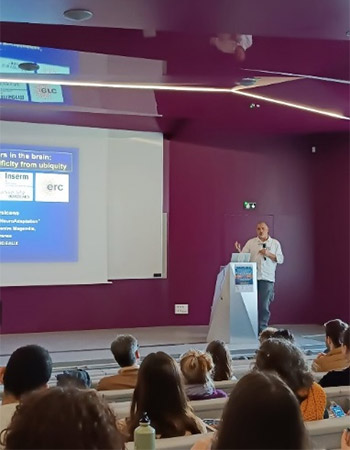
Once the speeches by the academic authorities of the University were finished, the inaugural talk was given. On this occasion we were fortunate to hear the excellent overview by Dr. Giovanni Marsicano, the researcher who leads the group "Endocannabinoids and Neuroadaptation" attached to Neurocampus Bordeaux, with an exceptional professional career and world renown in the field of cannabinoids, who has been collaborating for decades with various members of the SEIC.
Giovanni gave us a magnificent and entertaining review of the location and functionality of the CB1 receptor in the Central Nervous System, involved in processes such as memory, sociability, or cellular metabolism, depending on the region and cell type where it is located. With special mention of the role of this receptor in astrocytes and in cellular compartments such as mitochondria.
After the lunch break, the scientific meeting resumed with the presentation of papers by scientists working in the field of cannabinoids in Spain and France, in which significant advances in current knowledge on the physiological, therapeutic, and addictive impact of cannabinoids on the body were presented. Among the findings was how these compounds are involved in glial signalling processes, neurodegenerative diseases, or cancer. Their cellular and molecular role in the uptake of abuse substances, as well as their therapeutic potential, were also explored.
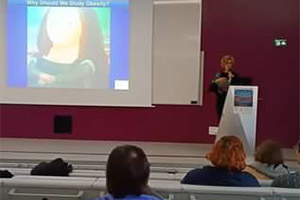
The second day of the congress included the Hot Topic activity, with the presentation by researcher Dr. Daniela Cota (INSERM, NeuroCentre Magendie of the University of Bordeaux, France). This presentation, together with the inaugural talk by Dr. Giovani Marsicano, was a very useful update on the CB1 receptor. Daniela was able to summarise more than 50 years of work on the role of the CB1 receptor in regulating metabolism, and its role in obesity and diabetes.
She highlighted the importance of this receptor for the treatment of these diseases through the modulation of the peripheral CB1 receptor. The results obtained over the years by Daniela have been instrumental in understanding the role of energy-related lipid-based signalling systems, such as the endocannabinoid-CB1 system and, more recently, bile acid-TGR5 and the energy sensor mTOR, in the brain-periphery interaction that regulates energy balance, pointing to the importance of some of these mechanisms as potential therapeutic targets for obesity and type 2 diabetes.
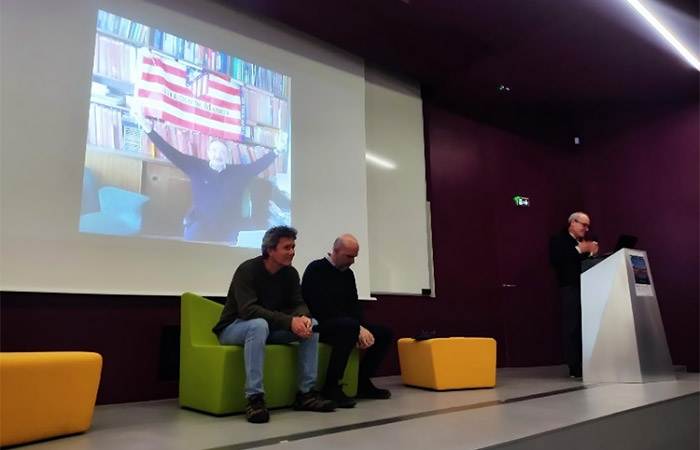
At the end of the second day, before the Assembly, the Society paid a well-deserved tribute to José Antonio Ramos Atance, who sadly passed away this year. An emotional ceremony conducted by Pedro Grandes, with the participation of Manuel Guzmán, Julián Romero, and the reading of a heartfelt letter from Javier Fernández Ruiz. An affectionate farewell to the founding father of our Society, a pioneer and catalyst of cannabinoid research in Spain. A great scientist, but an even better person.
This was followed by the Society's General Assembly. A key point of the meeting was the announcement of President Pedro Grandes' retirement, after years of dedication as president of the society and as a member of the board of directors. This was met by warm applause as an expression of deep gratitude for all the work he has done over the years. The society then welcomed the current Vice-President of the SEIC, Cristina Sánchez, as the new President of the SEIC. She is the first woman president of our society.
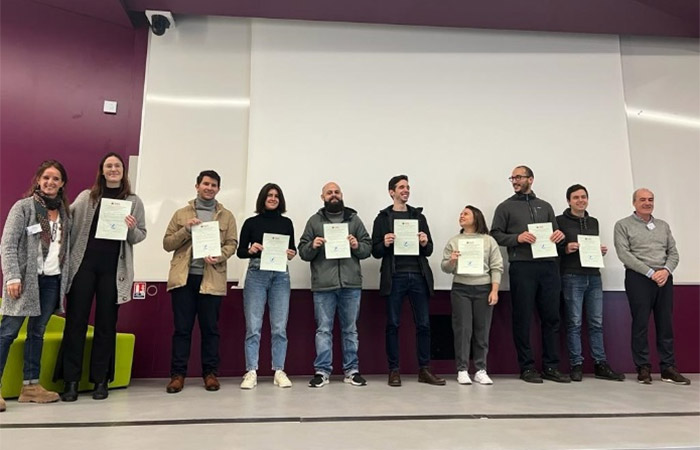
Once again the SEIC annual meeting ended with the presentation of awards for the best publications in the field of cannabinoids by pre- and post-doctoral researchers in Spain and France in 2023. The pre-doctoral award for the article "Peripheral CB1 receptor blockade acts as a memory enhancer through a noradrenergic mechanism" in the journal Neuropsychopharmacology was collected by Araceli Bergadá-Martínez. The postdoctoral prize awarded to the article "Control of a Hippocampal recurrent excitatory circuit by cannabinoid receptor-interacting protein GAP43" in Nature Communications was presented to Irene-Berenice Maroto. Finally, to close the meeting, the prizes for the best oral communications and posters presented by Spanish and French scientists at the meeting were awarded and the event was concluded following a farewell and closing words by outgoing SEIC president Dr. Pedro Grandes.
